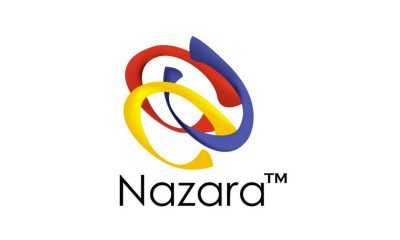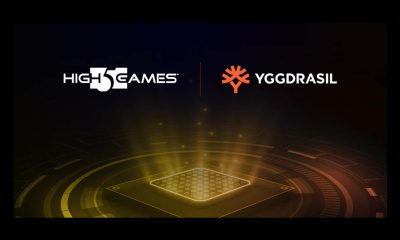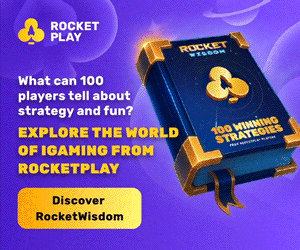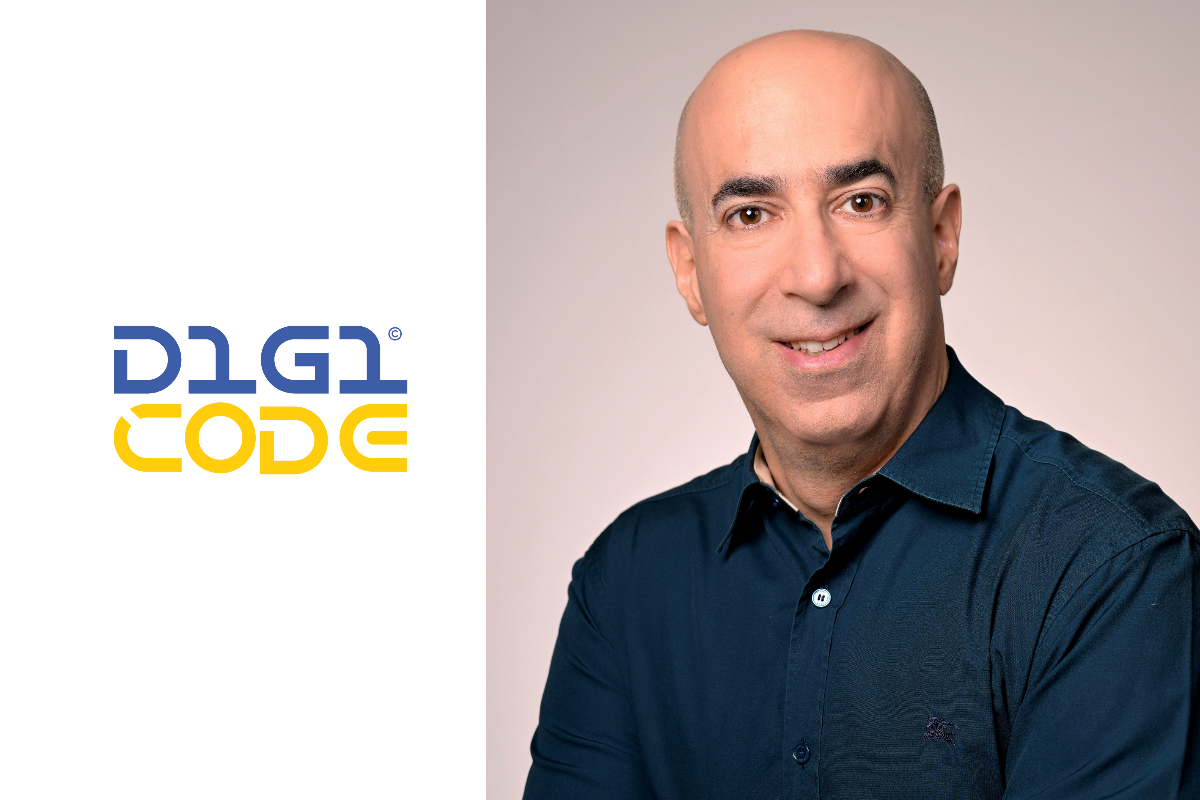Latest News
Blockchain could help legalise the loot boxes
Loot boxes, which have been in existence for about a decade, have run into legal problems in countries such as the Netherlands and Belgium. The redeemable virtual rewards system, which involves accessing maps, weapons and a whole range of upgrades to your in-game functionality, had already become so popular that some developers have wholly shifted their monetisation models away from paid-for-games to free-to-play games because of the revenue they provide.
But the legal issues are threatening the core business model of loot boxes. That is why developers are thinking of reverting to a business model based on advertising or selling games rather than giving them away for free.
However, there can be another option. Rather than making such a drastic U-turn, they could find salvation in the shape of the blockchain. By implementing a new tokenised economic model that this technology provides, game developers could not only continue to make money without having to rely on advertising but also implement a system that would reward gamers for the time they spend playing games.
The problem with loot boxes
Loot boxes first emerged in Asia, but have become more well-known after social game developers like Zynga successfully implemented them. Since then, loot boxes have slowly begun to embed themselves into the fabric of most games, even where their incorporation seems unnecessary. Then loot boxes’ presence in triple-A console games like Overwatch, Battlefront 2, and Shadow of War ramped up their presence in terms of public awareness.
When an entry fee or cost is present in a gaming monetisation scheme, along with luck or chance, and the potential for some type of monetary gain, the scheme is almost definitely going to be considered gambling as a result of those three key elements. Since loot boxes have both a cost and a “random element,” they have landed game makers in hot water with regulators. The cash purchase of these boxes, for regulators in the Netherlands and Belgium, resembles gambling – and is therefore an illegal offering.
While companies like EA have said they will persist with loot boxes, confident that other regulators do not see the situation in the same way as the Belgian or the Dutch authorities, there is no guarantee that other authorities would not act to quash them.
Blockchain as a solution
Rather than putting these key revenue flows at risk though, one potential path that publishers could pursue is to leverage a new form of blockchain monetisation. For example, my company, Loot, has a new mining process that leverages player skill to generate new units of cryptocurrency instead of GPU or CPU mining.
All blockchain networks have some sort of incentive mechanism built into them, which helps the network to function properly. In the case of Bitcoin, this is the proof of work algorithm that keeps the network secure and trustworthy by making it hard to add new transaction data to the blockchain. For game networks, the algorithm could be based not on computational power, but gameplay and the “work” done by players. This would eliminate the initial entry fee, which would prevent regulators from labelling it gambling.
Even though you can already earn virtual currencies within games, cryptocurrencies that are mined and awarded as a result of gameplay are a unique new solution because traditional virtual currencies in games have no value outside of the game, while cryptocurrencies hold their value everywhere. This is the key, because if the coins players spend in the game to buy loot boxes and other items have real value outside of the game, the developers can accept their own in-game coins as real payment for their items. This solves the problem of traditional entry fees and ultimately eliminates the consumer risk that is arguably the most important of the three elements that define what is gambling and what is not.
From the game publisher’s perspective, this would mean they could continue to offer loot boxes but just have them paid for with cryptocurrency that gamers have mined and earned from their skill in play, instead of with real money.
For example, in Overwatch players are currently unable to spend in-game credits and have to spend real money or wait for a level up to grab a loot box. If the in-game credits were a cryptocurrency generated on a blockchain as a result of player skill, Blizzard could accept the credits as payment (at no cost to the user) and exchange the credits for dollars like any other cryptocurrency. This means the players do not have to spend any of their “real” money while the developer has the same revenue they did before.
As publishers and developers consider the effect that loot box regulation might have on profits, they should consider blockchain technology as a potential solution. Publishers should understand that this innovative new technology could safeguard existing revenue streams and also incentivise gamers to play more.
Tobias Batton is CEO of Signal Zero. The company behind Loot, the world’s first blockchain protocol that allows gamers to earn and mine tradable tokens as a result of their skill and without entry fees.
Source: Latest News on European Gaming Media Network

Latest News
Hyperlocal vs. Global: Is the Future of iGaming in Deep-Market Strategy?
Reading Time: 3 minutes
Itai Zak, Executive Director of iGaming at Digicode and former CEO of SBTech, the tier-one sportsbook and technology provider acquired by DraftKings in 2019, also serves as CEO of Gemstone Interactive, a boutique solutions partner for iGaming operators. A veteran executive and long-time advocate of player-first innovation, he offers a sharp look into the future of iGaming. With a history of guiding major brands through expansion and transformation, Zak is not someone who follows trends for the sake of activity. In his view, the real battleground for long-term growth is not how many markets an operator enters but how deeply they engage in the ones they already serve. His question to operators is direct and strategic: Where are you truly winning, and why?
Let’s explore the deep-market strategy powering sustainable growth, blending financial realism, adaptive tech, and real-time personalization into a focused vision that favors precision over presence.
Why Global-First Is Losing Ground
Just a few years ago, a successful operator was often defined by their geographic footprint. Launching in multiple regions created the illusion of momentum. But today, market saturation, regulatory fragmentation, and rising player expectations are exposing the limitations of this model.
Itai Zak explains that, “Europe was once a centralized opportunity. Today, it’s ten different countries with ten different frameworks.” From a compliance and cost perspective, this has created operational bottlenecks. Each jurisdiction now requires bespoke workflows, regulatory reporting, responsible gaming oversight, and even tailored user experiences.
Worse, players have evolved. A “universal” interface or product no longer works across markets. In emerging territories such as Brazil and India, success depends heavily on how well an operator adapts to cultural preferences, local payment systems, and region-specific content.
The Rise of Deep-Market Strategy
What we’re witnessing is a strategic shift from volume-based growth to depth-based dominance. There are 4 main drivers behind this pivot:
1. Fragmented Regulation Requires Granular Commitment
The days of a single gaming license acting as a passport are over. Today, compliance is not just about legality; it’s about infrastructure. Operators must build and maintain localized compliance engines to keep up with rapidly evolving standards. “What works in Sweden will likely fail in the Netherlands. Operators need dedicated regulatory teams per region.”
2. Player Experience Is Hyperlocal by Default
Consumer expectations are shaped by local context. Nordic players prefer richer desktop UIs and immersive casino features. In contrast, Indian players expect mobile-first simplicity and local payment flows like UPI. LATAM regions are seeing explosive growth, but only for operators who integrate payment rails like PIX and deliver Spanish/Portuguese-tailored content.
Uniformity no longer means scalability; it means irrelevance.
3. Efficiency Beats Vanity Expansion
There’s a growing recognition that it’s better to be exceptional in one market than average in many. Deep-market strategy prioritizes:
- Higher Lifetime Value (LTV)
- Increased retention
- Lower Customer Acquisition Cost (CAC)
- Improved regulatory predictability
4. Retention Is the New Growth Lever
Global growth might bring short-term user acquisition, but retention requires local trust, familiarity, and relevance. The deeper your market understanding, the more likely you are to convert players into loyal customers.
Is Global Expansion Dead?
Not quite. What’s emerging is a hybrid model – global infrastructure combined with hyperlocal execution.
Basically, this dual-layered approach is “a shared chassis with localized controls.” Operators need scalable back-end platforms – compliance engines, CRM systems, bonus engines, but allow for front-end freedom. Local marketing, payment, and content teams execute based on what actually works on the ground.
In practice, this means:
- Platform consistency at the core (RGS, risk, KYC, CRM)
- Market-specific UX/UI, payment flows, and offers
- Country-level dashboards to monitor local KPIs
- Flexible brand architecture to launch sub-brands per market
Knowing When to Deepen vs. Expand
There is a straightforward framework to determine whether it’s time to grow outward or dig deeper:
Expand if:
- You’ve fully optimized LTV in your current markets
- Your infrastructure can absorb additional regulatory complexity
- You have access to local partners or brands in the new region
Deepen if:
- Your retention or conversion metrics are below industry benchmarks
- There’s untapped potential in localized features or payment integrations
- Local competitors are outperforming despite a smaller reach
This lens helps operators avoid reactive expansion and instead invest where sustainable growth is most likely.
The Digicode Approach: Local Autonomy, Central Control
At Digicode, we’ve seen this shift firsthand. The operator clients are no longer asking for “just another multilingual skin.” They’re asking for:
- Modular platforms that can launch and manage multiple brands with independent rulesets
- Configurable compliance per market
- Local bonus engines that adapt to regulatory constraints
- Player lifecycle tools tuned for cultural buying behavior
What powers this? Our ability to separate back-end scalability from front-end customization, giving operators speed, control, and precision as they go deeper into high-performing markets.
Final Thought: Strategy Is Local
The market is maturing. The future of iGaming isn’t about being everywhere, but being someone to someone in specific markets. The brands that win long-term will be those that go deeper than their competitors are willing to, speak to players with cultural fluency, and build infrastructure that adapts intelligently.
Itai Zak put it simply: “Don’t ask how many countries you’re in. Ask where you’re winning and why.”
If local precision is your next competitive edge, Digicode’s experts can help you deliver it without losing control of the big picture.
The post Hyperlocal vs. Global: Is the Future of iGaming in Deep-Market Strategy? appeared first on European Gaming Industry News.
Latest News
Inside Black Cow’s Decision To Go All In On Multiplayer
Reading Time: 3 minutes
Black Cow Technology Founder and CEO, Max Francis, on why the company has shifted focus from software development to game development, and why he believes multiplayer is the future of online gambling entertainment
Black Cow has just announced its transition into a multiplayer content provider. What made you refocus the business in such a way?
We truly believe that multiplayer is the future of online gambling entertainment, and with our own technology capable of building next-gen multiplayer experiences, we wanted to transition into a content-led business and release some innovative games of our own. Our Multiplayer RGS is especially powerful, allowing operators and suppliers to bring multiplayer gameplay to any game format, even including non-gambling events. Black Cow’s robust, reliable and highly flexible technology is already used by some of the biggest organisations in the industry, including the likes of DraftKings and Light & Wonder. The shift into creating our own multiplayer content enables us to build on our successful Remote Game Server (RGS) and Jackpot Server technology to create first-of-its kind games offering unique player experiences via our Multiplayer RGS platform.
Tell us more about your Multiplayer RGS and its capabilities. What sets it apart from similar solutions in the market?
Our Multiplayer RGS has been several years in the making and is already live with Light & Wonder. Our Multiplayer RGS can be used to create multiplayer experiences across anything from slots and table games to crash, plinko, lottery, live dealer and bingo. Games can be player-cooperative or player versus player. The system’s capabilities are really only limited by the imagination of the people using it, and that’s why we’re so excited to be moving into the realm of game development so that we can push its limits to disrupt online casino lobbies with Black Cow content.
Taking a business in a new direction is a significant undertaking, not without its risks. How have you approached this transition?
It was clear to me that we had the technology to create multiplayer content, but not necessarily the experience to date, and that’s why we’ve been making strategic hires. This year we have promoted Paul Jefferson to the role of Chief Technical Officer and we have welcomed two more big-hitters to the business – Ernie Lafky as Chief Product Officer and Shelley Hannah as Chief Operations Officer. Ernie is taking the lead when it comes to what our games will look like and how we combine key elements like multiplayer, gamification and social interaction. Shelley is managing the operational aspects of our transition to a hosted product-first model. In terms of mitigating the risk, it comes down to the deep rooted confidence we have in our technology and our fantastic team, plus our belief that players are seeking social multiplayer entertainment.
Why do you have such a firm belief that multiplayer content is the future? And to what extent will it dominate online casino game lobbies?
It’s not the future, it’s the now. You just have to look at the experiences offered by other online entertainment options to see that they are becoming increasingly multiplayer and social. From dating to streaming, social media to mobile gaming, consumers want to engage with products and experiences that can be enjoyed with others. But online casino and sports betting sit at odds with this as they have been, and remain, mostly solitary experiences. We have started to see a bit of a shift away from this, first with live casino and then the rise of the crash game format. But this is just the start of what multiplayer online gambling entertainment can look like, and at Black Cow we have the vision, people and technology to really spearhead the multiplayer movement and be a true leader in the space.
As for the degree to which multiplayer content will dominate online casino and sportsbook lobbies, I think it has the potential to be significant but there will always be players that want to engage with more traditional games, products and experiences, so it will be down to each operator as to how they promote multiplayer games. Naturally, this approach will differ from brand to brand based on their specific player-base.
What can we expect from Black Cow now that your transition into a multiplayer game developer is well underway?
Paul, Ernie, Shelley and the team are working hard on our initial product roadmap, including the first run of games that will leave our production line. This is a really exciting moment for me and the whole team, as it will bring our vision to life and set the blueprint for what our multiplayer games will look like moving forward. It goes without saying that our multiplayer games will embody the core values we have built Black Cow on – reliability, flexibility and robustness. This is a big change for Black Cow, and change does bring challenges. But we are all aligned and excited by the new direction. Success is never guaranteed, but we are walking into the next chapter of the Black Cow story confident that it will be our best yet.
The post Inside Black Cow’s Decision To Go All In On Multiplayer appeared first on European Gaming Industry News.
Latest News
Female Protea Esports Team arrives safely in Malaysia.
Reading Time: 4 minutes
The MSSA Protea Esports Team for the MLBB Esports Title has safely arrived in Malaysia. The team is proudly sporting purple, instead of green, in support of ending Gender Based Violence in South Africa.
Moments before the team landed in Malaysia, IESF had already done the draw. There are four groups of national teams and South Africa is in Group A with Malaysia and Iran.
This is, without doubt, the group of death with Team Malaysia having won the Mobile Legends: Bang Bang (MLBB) event at the World Esports Championship (WEC) 2024, the Protea Esports Team has an uphill battle against them. However, it is more than likely that the team that wins this group will have a good chance of winning the World Championships (WEC25).
The prize money is as follows:
MLBB Women prizes:
- 1st place – US$17,500.00
- 2nd place – US$10,500.00
- 3rd place – US$7,000.00
The full team is as follows:
| Name | Club | Nick | Province |
| Rowell Pillay (Capt.) | Mavericks | Ketsuka | KZN |
| Neisha Ann Khan | Mavericks | Rose | Western Cape |
| Ranya Sujee | Mavericks | Aewynne | Gauteng |
| Rashmika Nanakan | Mavericks | DimpledDruid | Gauteng |
| Shanel Arunachellam | Mavericks | Isla | Gauteng |
Additional reading:
- 2025 Calendar of Events
- AEC24 – Champions of all of Africa – Protea Female Counter Strike 2 Esports Team wins AEC24
- AEC24 – Forged in battle – a Counter Strike story…
- Affiliation: Private Clubs
- Affiliation – Procedure to be followed by school clubs affiliating for the 2026 season.
- Awards – 2024 Management Board Awards
- Backgammon – South African Player Reaches World Championship Final in Monte Carlo
- Backgammon – Welcome home, Doron. You’ve inspired a nation!
- Blog – MSSA’s blog page is ranked 9th in South Africa!
- Board – Calling all volunteers.
- BRICS – Breaking the glass ceiling at 2025 BRICS Esports Championships – 31 May 2025
- BRICS – Final day of BRICS Esports Championships – 1 June 2025
- BRICS – Luay finishes in fifth place in his group.
- BRICS – MSSA National Team Trials for 2025 BRICS Esports Championships for TEKKEN 8 – 13 April 2025
- BRICS – Protea Luay Khan faces toughest matches in his life.
- BRICS – ReSF to host BRICS Esports Championship 2025 in Tekken – 28 May 2025 to 3 June 2025.
- BRICS – Sydney ‘KYōi’ Wood wins both hearts and minds.
- BRICS – UNIFIR3 to stream 2025 BRICS Esports Championships on 31 May – 1 June 2025.
- BRICS – With cat-like tread…MSSA’s Protea Esports Team for Tekken 8 advances on the 2025 BRICS Esports Championships in Moscow.
- Colours 2024 – Almost half the awards are awarded to female gamers.
- Colours 2024 – Athletes who have earned Senior Provincial Colours in 2024
- Events – 6th WESTERN CAPE Online Championships – 22 February 2025
- Events – 24th WESTERN CAPE Championships – 31 May 2025
- Events – Last chance to qualify for BRICS Esports Championships – 14th Provincial Online Championships to be held on 5 April 2025.
- Events – Northern Cape Online Esports Provincial Championships – 25 January 2025.
- Events – Reminder: 5th S A Schools Online National Championships – 28 June 2025
- Events – Types of esports events run by MSSA.
- Fees: MSSA advises of its affiliation and registration fees for the 2024/2025 season.
- Hosting – Hosting official Regional Championships.
- IESF – AEC – African Regional Championships – Day 2 – Tuesday, 29 July 2025 at 17H00.
- IESF – AEC – AFRICAN REGIONAL PLAYOFFS START TODAY FOR MSSA
- IWSF – AEC – After an initial loss, SA beats Madagascar.
- IESF – AEC – Female Protea Team for the Counter Strike 2 esports title to do battle against Namibia – AEC25
- IESF – AEC – IESF’s African Regional Championships – FINAL RESULTS – Tuesday, 29 July 2025.
- IESF – AEC – Namibia crumbles!
- IESF – AEC – Rowell Pillay replaces Neisha Khan as captain of the female Protea MLBB esports team.
- IESF – AEC – South Africa conquers all in MLBB…
- IESF – AEC – South Africa granted victory with Namibia being disqualified!
- IESF – AEC – South Africa takes to the field in PUBGM on 28 July 2025 at 17H00.
- IESF – AEC – South Africa to battle both Namibia and Congo on 22 July 2025.
- IESF – AEC – South Africa vs Madagascar – 26 July 2025 at 14H00.
- IESF – AEC – South Africa vs Namibia – 25 July 2025 at 21H00.
- IESF – AEC – The goddess Nike smiles on – again!
- IESF – AEC – The Titans meet – South Africa vs Madagascar – 23 July 2023
- IESF – AEC – Victoria cum audacia! – South Africa wins!
- IESF – AEC – Victory over Madagascar – now on to Namibia!
- IESF – AEC – Victory without losses!
- IESF – AEC – WAYLANDER stream of IESF’s Southern African Regional Championships
- IESF – 136 Nations Registered for IESF 2025 World Esports Championships.
- IESF – IESF announces proposed game titles for 17th World Esports Championships to be held in 2025.
- IESF – IESF Official Statement on WEC24 Prize Pool Allocation
- IESF – MSSA CONFIRMS ITS ENTRY TO WEC25
- IESF – Official Game Titles for 2025 IESF WEC25
- IESF – SA Proteas to take on four African countries in MLBB – 12 April 2025
- IESF – SA Team Trials
- IESF – WEC25 – Female Protea Esports Team arrives safely in Malaysia.
- IESF – WEC25 – Joy unrefined!
- IESF – WEC25 – We all stand together!
- International events – After defeating Madagascar, SA’s Female Proteas to take on Mauritius and Ghana..
- International events – FHE eFootball World Tournament 2025 – Sign Up Now!
- International events – ReSF to host BRICS Esports Championship 2025 in Tekken
- International events – SOUTH AFRICA vs IVORY COAST in PUBGM title
- International events – TEST MATCH – SOUTH AFRICA vs MAURITIUS in MLBB title
- International events – Rose is no wilting bloom – the result of SA vs Mauritius.
- International events – SA Female Protea to take on Mauritius and Madagascar in MLBB – 1 May 2025
- International events – SA Female Team emerges triumphant!
- International events – SA Proteas march on to fight Mauritius in MLBB on 13 April 2025 at 15H00
- International events – SA Proteas to take on Congo in MLBB on 13 April 2025 at 13H30
- International events – SA trounces Botswana in MLBB
- Legal – Privacy. Who is looking after the children?
- National Team Trials: Ensuring every athlete achieves their dreams.
- National Team Trials – MSSA events that count for National Team Trials for 17th IESF World Championships (WEC25)
- Nominations: Nominations are needed for 2025 AGM.
- Nominations: Nominations required by midnight,19 November 2025 for MSSA’s Management Board Awards.
- Phygital: 2025 MSSA PHYGITAL EBASS NATIONAL CHAMPIONSHIPS – 19 – 22 NOVEMBER 2025
- Readership: Member clubs are invited to post articles on MSSA’s blog.
- Results – Northern Cape Online Esports Provincial Championships held on 25 January 2025.
- Team Trials: To qualify for National Team Trials to represent South Africa.
- Titles – Esports titles selected for all MSSA’s Premier Provincial and National Championships – 2025.
- Titles – Esports titles selected for all MSSA’s 2025 High School and Primary School Championships and leagues.
- Titles – Esports titles selected for all MSSA’s 2025 Student Championships.
- Transfers: Transfer season – 1 November 2024 to 28 February 2025
- WADA – WADA’s 2025 Prohibited List and revised TDSSA
Jobs:
- Legal Counsel – Mercedes-AMG Petronas Formula One Team (Brackley)
Other news:
- Chess – From Georgia with Love – 2018 FIDE Chess Olympiad
- Chess – World Chess Olympiad in Batumi 2018 -n a book by Dr. Lyndon Boauh
- Western Cape – Table tennis rulebook now available in isiXhosa
Other African News:
- Benin – Assemblée Générale Constitutive : la Fédération Béninoise des Sports Électroniques (FBSE) mis sous les fonts baptismaux
- Botswana – Botswana has an esports Federation
The post Female Protea Esports Team arrives safely in Malaysia. appeared first on European Gaming Industry News.
-
Latest News3 months ago
Duels for Friends in Trophy Hunter. Invite your friends and create a shared space for fun and competition.
-
Latest News2 months ago
Announcement: 25th September 2025
-
Latest News3 months ago
Flamez – A Fiery New Online Casino Contender from Ganadu
-
Latest News3 months ago
GR8 Tech’s Bet It Drives Wraps Season 1 with Stephen Crystal—From Las Vegas Legends to Global Gaming Leadership
-
Latest News3 months ago
AI-Powered Gamification Arrives on Vegangster Platform via Smartico
-
Latest News4 weeks ago
JioBLAST Launches All Stars vs India powered by Campa Energy: A New Era of Creator-Driven Esports Entertainment
-
Latest News2 months ago
The Countdown is On: Less Than 3 Months to Go Until The Games of The Future 2025 Kicks Off in Abu Dhabi
-
Latest News3 months ago
Adidas Arena Set to Welcome the 2026 Six Invitational


















You must be logged in to post a comment Login